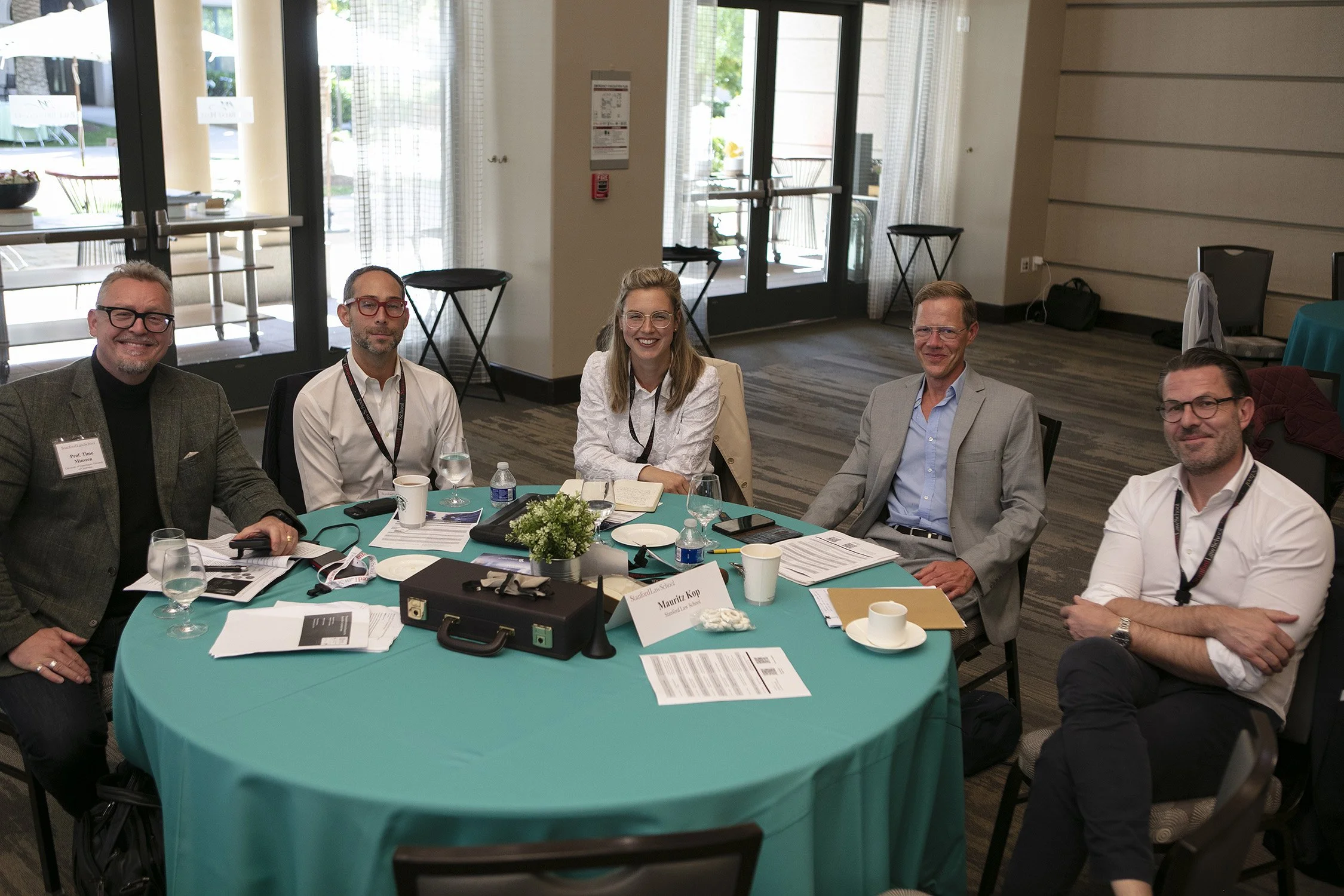Stanford, CA, May 8, 2024—Today, the Stanford Center for Responsible Quantum Technology (RQT) had the privilege of hosting a distinguished Canadian delegation for a critical dialogue on the future of quantum governance. The meeting, held at Stanford Law School, was a pivotal moment for shaping the international policy landscape for these transformative technologies. Professor Mark Lemley and Executive Director Mauritz Kop were honored to welcome senior officials from Global Affairs Canada, the nation’s foreign ministry, for a conversation designed to inform Canada’s quantum policy development efforts ahead of its G7 Presidency in 2025.
A Convergence of Expertise in Law, Technology, and Diplomacy
The success of such a dialogue hinges on the diverse expertise of its participants. On behalf of the Stanford Center for Responsible Quantum Technology, its Founding Director Mauritz Kop was pleased to co-host the session. Professor Kop’s work, which focuses on the ethical, legal, social, and policy implications (ELSPI) of quantum technologies, AI, and cybersecurity, has included serving as a member of the Expert Panel on the Responsible Adoption of Quantum Technologies for the Council of Canadian Academies (CCA). This role provided a direct link to the foundational research shaping Canada's domestic and international quantum strategy.
Kop was joined by his esteemed colleague, Mark Lemley, the William H. Neukom Professor of Law at Stanford Law School and the Director of the Stanford Program in Law, Science, and Technology. As one of the world's preeminent scholars in intellectual property and technology law, Professor Lemley’s insights into innovation, competition, and the legal structures that govern emerging technologies were indispensable to our discussions on incubating startups and navigating the complex IP landscape of the quantum sector.
A Foundation in Evidence: The Council of Canadian Academies' Quantum Potential Report
Our discussions at Stanford did not occur in a vacuum. They were built upon a solid foundation of evidence-based analysis, most notably the 2023 Quantum Potential report from the Council of Canadian Academies (CCA). As a member of the expert panel that authored this report, chaired by the esteemed Professor Raymond Laflamme of the University of Waterloo, Professor Kop was able to directly infuse its findings into our dialogue.
The CCA’s Quantum Potential report was commissioned by the National Research Council of Canada (NRC) and Innovation, Science and Economic Development Canada (ISED) to assess the opportunities and challenges of quantum adoption in Canada. The report provided a clear-eyed assessment, warning that while the potential is transformative, significant scientific and engineering obstacles remain. It highlighted critical national security risks, particularly the potential for a fault-tolerant quantum computer to "undermine the digital infrastructure that underpins key areas of everyday life" and "jeopardize data privacy and security".
Crucially, the report championed a proactive and responsible approach to governance, framed through the lens of "Quantum ELSPI"—the ethical, legal, social, and policy implications of the technology.
The Culmination: The G7 Kananaskis Common Vision on Quantum
The journey from academic analysis and focused diplomatic engagement to international consensus reached its apex on June 17, 2025. Drawing upon the preparatory work from the CCA, the insights from our meeting at Stanford, and extensive multilateral consultations, the Government of Canada, during its G7 Presidency, unveiled the Kananaskis Common Vision for the Future of Quantum Technologies.
This declaration represents a landmark achievement in global technology governance and directly reflects the principles and priorities discussed at our Center. The document acknowledges both the "transformative benefits" of quantum technologies and their "far-reaching implications for national and international security". Echoing the core themes of our dialogue and scholarship, the G7 leaders committed to a set of shared principles that build directly on the work of the RQT community and the CCA report.
G7 Joint Working Group on Quantum Technologies
The meeting with the Canadian delegation at the Stanford Center for Responsible Quantum Technology was a profound demonstration of how academia can effectively inform and shape public policy on a global scale. It showcased a direct pathway from flagship scholarship like the “Ten principles for Responsible Quantum Innovation” and foundational reports like the CCA's Quantum Potential, through focused expert dialogues, to the codification of international norms in a G7 leaders' declaration. We are proud to have played a role in this vital process and look forward to continued collaboration with our Canadian partners and the new G7 Joint Working Group on Quantum Technologies to build a future where quantum technology unfolds responsibly, securely, and for the benefit of all humanity.
Meer lezen



